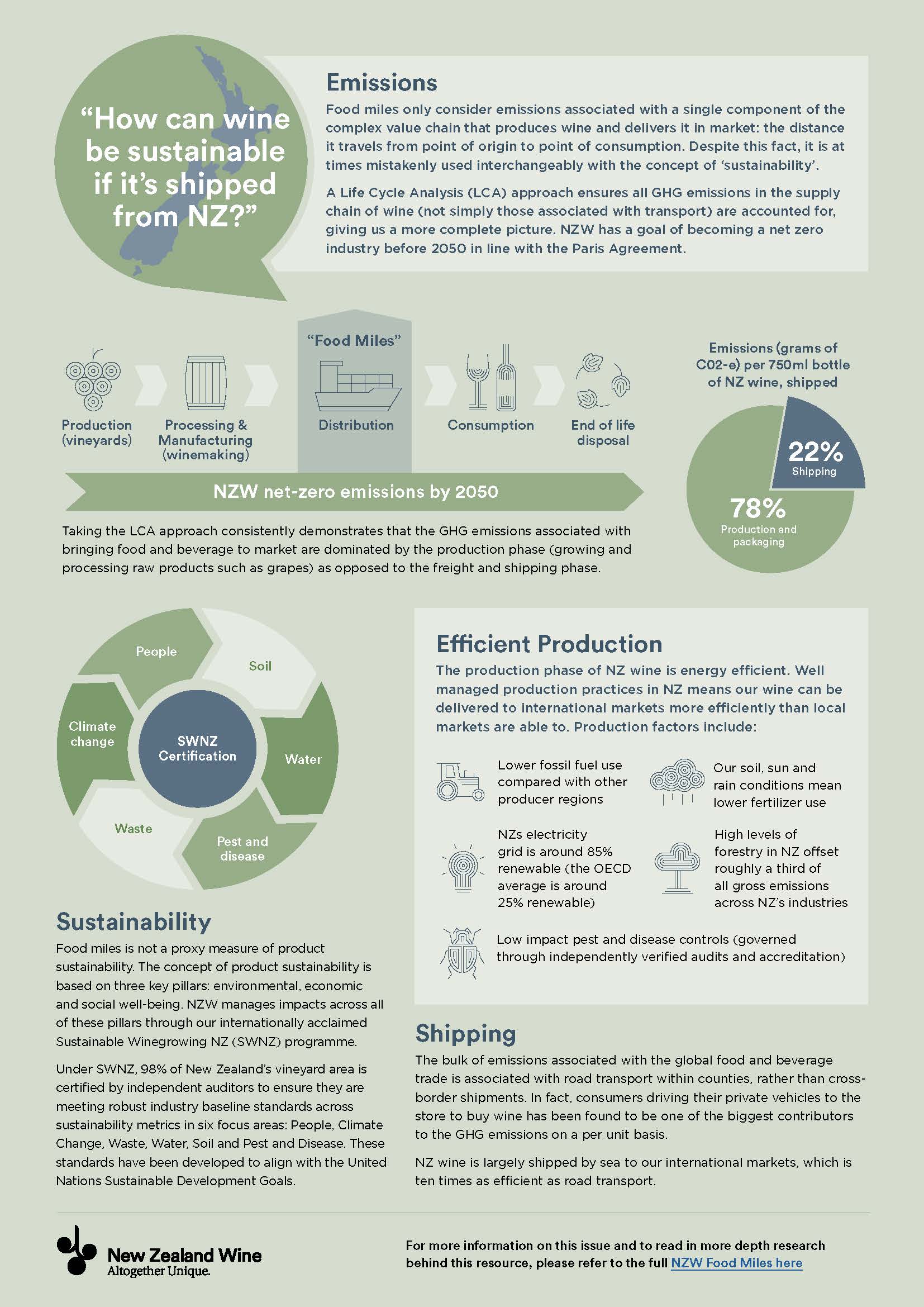
New Zealand Wine remains committed to reducing emissions and other environmental and social impacts across the entirety of our value chains. We have committed to a goal of the industry achieving net-zero emissions ahead of the regulatory deadline of 2050.
Because food miles look only at emissions associated with freight and not those associated with the production phase (which can account for the majority of emissions) it is an inadequate measure of emissions and fails to account for efficient production practices in producer regions.
Despite this fact, food miles are at times mistakenly used interchangeably with the concept of sustainability (i.e. how can a product be sustainable if it has been shipped from NZ?) Although it is an easy concept to communicate, ‘food miles’ should not be considered a proxy measure of product sustainability or environmental impact.
The concepts of product sustainability (based on the three key pillars of environment, economy and social wellbeing) and Life Cycle Analysis (an assessment of impacts of products across the complete value chain from cradle to grave) give a far more accurate, comprehensive and meaningful picture of the relative impacts to people and the planet associated with any product, including NZ wine.
There is a growing body of evidence, based on improved understanding of emissions and other sustainability metrics across value chains, that demonstrates NZ is able to deliver products to international markets more efficiently and with higher certainties pertaining to value chain sustainability (including environmental impact and labour force exploitation) than many local markets.




